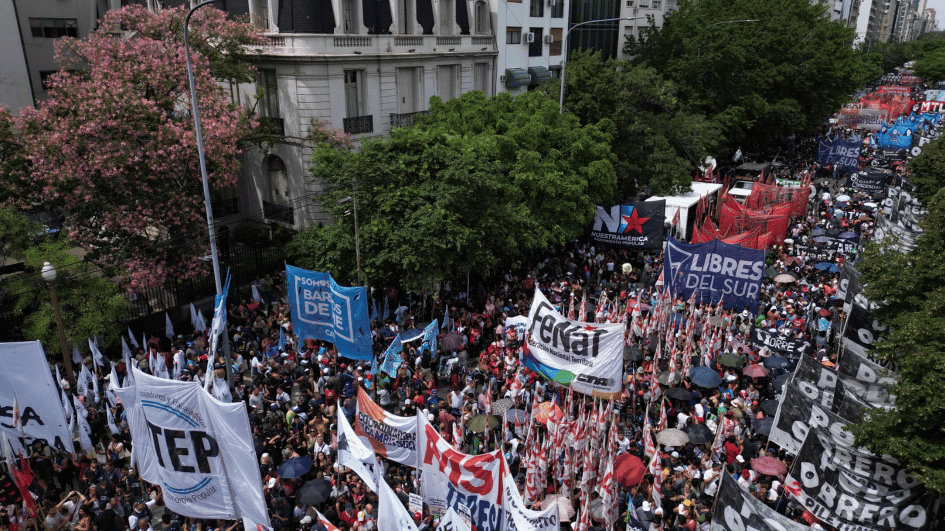
The International Monetary Fund has urged the government of Argentine President Javier Milei to shield the poor as he pursues harsh austerity measures to cut government spending, according to an interview published Sunday.
The IMF has praised Milei's government for efforts to balance the books after years of overspending, but his drastic measures have led to strikes and raised concerns about growing hunger.
IMF deputy managing director Gita Gopinath told La Nacion newspaper that austerity measures must be "calibrated to ensure that social assistance continues to be provided and that the burden does not fall entirely on the poorest groups."
Gopinath visited Buenos Aires last week to evaluate Argentina's $44 billion credit program and met with Milei, members of his government, economists, union leaders and civil society organizations.
Since taking office in December, the libertarian Milei has devalued the peso by over 50 percent, cut tens of thousands of public jobs and halved the size of the government.
He also ripped away generous state transport and energy subsidies and froze aid to 38,000 soup kitchens pending an audit, hitting the poor hard as annual inflation soared to 254 percent.
"The economy that this government inherited was close to a crisis, and required bold and decisive action to move it away from the precipice," said Gopinath.
However, she said more social measures were needed to "ensure that the reduction of the fiscal deficit does not fall on the vulnerable."
Gopinath estimated Argentina's monthly inflation -- which stood at 20 percent in January -- would drop to single digits by the middle of 2024.
"But I think it will take at least a year to bring inflation to low levels, and then maintaining it at those levels until 2025 will also require efforts."
She said that for the IMF, it would be "critical" for the government to invest in human capital.
"Child poverty rates of more than 55 percent are extremely worrying. It is important to ensure that this percentage drops greatly and to be able to invest more in education."